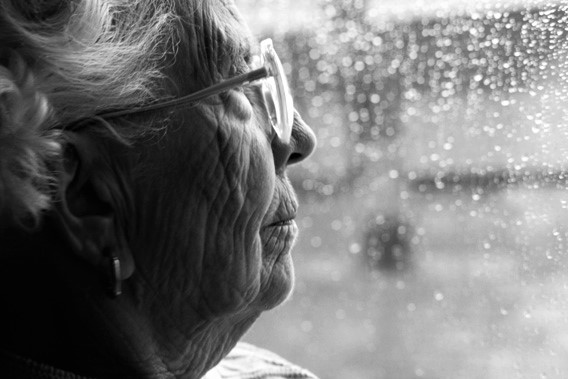Keith Brofsky
By
Hazel Speed
The study claiming that the internet will isolate 700,000 elderly people by 2030 reveals some stunning information, an indictment against those who perpetuate the neglect of the elderly by excluding them from society, the one culprit being the internet!
It is accepted some elderly people can and want to use the internet, but mostly they have enough money, family support for technical back-up, help of neighbours or friends, and most importantly the aptitude, interest, and mental ability which modern technology requires. Choice is another factor also.
For others, however, it is quite a different story, they may have nobody to help, or the capacity to comprehend ever changing technology. I heard myself once over, an assistant in a national supermarket chain ring a manager in front of an older man and woman and he said “I’m not here to help old people”. Years ago he would have been sacked on the spot – it was a dreadful and ageist remark to make.
We live in a society geared for its younger members. Everything is online – checking special delivery receipts via online tracking, ordering various services that are only accepted if done online – bank cards are not accepted on the phone via some outlets. Yet we can tap a bank card at counters for items under £20 for immediate payments in stores, the list is endless. Older people prefer receipts and high street banking where they can see and speak with a person they know. They have as much right to that preferred form of banking and the managers know that only too well, which is why there will always need to be such a facility on offer too, although the branches are closing here and there thus limiting the convenience factor of local high street banking.
When grocery shopping it is most telling to notice older people would rather queue for longer times at check-out queues to be served by a person than to go to an automatic/self service till.
What if a person is disabled, and/or ‘chooses’ not to be on the internet? What a bizarre thing that choices of sexuality have to be accepted and accommodated but the aged (and other sections of society) cannot choose ‘not’ to be on the internet.
Other aspects of life discard the elderly. If people have a family, money, cars and good way of life, numerous holidays, etc, they have nothing in common with an old man walking his dog or an old lady pushing a shopping trolley, and few bother to say hello to them, that is until they lose a spouse or their children move away, etc.
The study refers to older people feeling as if they live a life without a window.
I myself am in my mid 60s and frequently suffer ageism in day to day living and can quite understand why some people I know prefer to stay at home other than to go out for local shopping. One friend and her husband prefer not to even answer the phone as in their view any contact with the outside world brings trouble.
I have come across people whose lives are most sad because of the lack of interest of others, such as an older person who lost an important family member they lived with and not one neighbour bothered to invite them in for a cup of coffee on the day of the bereavement.
Perhaps they had to be on the internet and post a tweet of the sad news for anyone to bother.
Please read the link to the aforementioned study and remember that most of the population will live to be old one day.
They say if you wish to judge a nation then see how they treat their elderly, disabled and the sick.
I know one thing, having read the link the facts therein sicken me that there are so many elderly feeling forgotten and sad when the rest of society could bring some help and happiness into their life if only they were more thoughtful and showed a little kindness. We all must reach out to help those who are alone, in need of help or desperate for a kind word – remember, we could all be in need of the same ourselves one day.
Hazel Speed
Photo (c) Hazel Speed – used by kind permision to Tuck Magazine



No Comments Yet!
You can be first to comment this post!